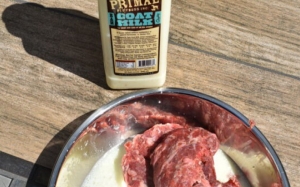 https://www.northpointpets.com/wp-content/uploads/2020/05/GoatMilkFactOrFiction_featuredimage-.jpg
1043
1670
Nicole R. Cammack
https://northpointpets.com/wp-content/uploads/2022/08/NPP_nav_color-1-300x94.png
Nicole R. Cammack2020-05-05 19:00:202023-05-14 18:25:28The Truth About Feeding Your Pet Raw Goat Milk
https://www.northpointpets.com/wp-content/uploads/2020/05/GoatMilkFactOrFiction_featuredimage-.jpg
1043
1670
Nicole R. Cammack
https://northpointpets.com/wp-content/uploads/2022/08/NPP_nav_color-1-300x94.png
Nicole R. Cammack2020-05-05 19:00:202023-05-14 18:25:28The Truth About Feeding Your Pet Raw Goat Milk https://www.northpointpets.com/wp-content/uploads/2020/05/GoatMilkFactOrFiction_featuredimage-.jpg
1043
1670
Nicole R. Cammack
https://northpointpets.com/wp-content/uploads/2022/08/NPP_nav_color-1-300x94.png
Nicole R. Cammack2020-05-05 19:00:202023-05-14 18:25:28The Truth About Feeding Your Pet Raw Goat Milk
https://www.northpointpets.com/wp-content/uploads/2020/05/GoatMilkFactOrFiction_featuredimage-.jpg
1043
1670
Nicole R. Cammack
https://northpointpets.com/wp-content/uploads/2022/08/NPP_nav_color-1-300x94.png
Nicole R. Cammack2020-05-05 19:00:202023-05-14 18:25:28The Truth About Feeding Your Pet Raw Goat Milk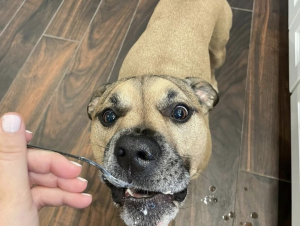
Are All Human Foods Dangerous for Dogs?
Every day there is more information made available to educate owners on various diets available. Commonly discussed and debated topics include grain-free foods and the age-old practice of giving your pets “table food.” Should we feed human food to our pets? The short answer is it depends. Some of these foods can be very beneficial and some could have unintended negative consequences.
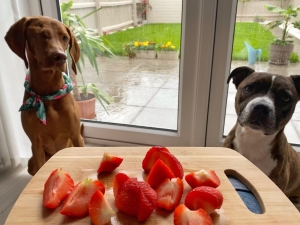
Should I Feed My Pet Fresh Fruits & Vegetables?
You may wonder if it's necessary to supplement your pet's diet with vegetables, especially if they don't seem to like them.
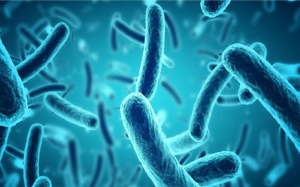
Just Because It Looks Like Science Doesn’t Mean It Is
On April 21, 2020, AVMA shared a CIDRAP article on MDR pathogens in raw meat diets for dogs.
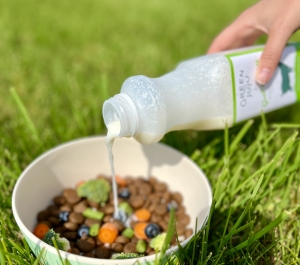
How to Improve the Quality of Dry Food
We recommend a variety of supplements for varying reasons, however the most common reason is to improve upon a kibble. Here are some of our favorite tips for improving the health of your pet on dry food:

Why Dogs and Cats Eat Grass: Understanding Your Pet’s Natural Behavior and Health Needs
Many people believe that pets eating grass are a sign of an upset stomach, but this is usually not the case. In fact, it's perfectly natural and healthy for dogs and cats to eat grass.

The Importance of Gut Health for Pets: The Role of Bacteria
Throughout the past 3 months, several peer-reviewed articles indicated how critical the microbiota and micro-biome are to canine behavior, health and performance, each warranting its own discussion. The following article discusses why canines should regularly receive probiotic supplementation to support their unique needs, and prevent common ailments and diseases

Monday
Tuesday
Wednesday
Thursday
Friday
Saturday
Sunday
Tuesday
Wednesday
Thursday
Friday
Saturday
Sunday
10am – 6pm
10am – 7pm
10am – 6pm
10am – 7pm
9am – 6pm
9am – 5pm
10am – 4pm
10am – 7pm
10am – 6pm
10am – 7pm
9am – 6pm
9am – 5pm
10am – 4pm
DIY Dog Wash closes one hour prior to store close.
Newsletter Sign-Up
Subscribe to get weekly tips, seasonal advice, and be the first to know about events, new products, sales, and more.
NorthPoint Pets is consistently recognized for excellence



How To Switch Your Cat’s Food
/ Nicole R. CammackHave you ever tried to switch your cat to a new food without success? This is actually a …
Nutrition: Could The Way You Buy Pet Food Be Putting Your Best Friend At Risk?
/ Nicole R. CammackHemp & CBD: Not All CBD is “Natural”
/ Nicole R. CammackIn part II we discussed phytoremediation, and why this is one of the largest hidden risks for those who …
CBD & Hemp: What is CBD and How Does It Work?
/ Nicole R. CammackCannabis: An Ancient Crop with Claims of Health Benefits The use of cannabis dates back to ancient civilizations, with …
June 2020: Journal of Animal Sciences Grain Free & Heart Disease Summary
/ NorthPoint PetsBackground & History of DCM Investigation In June of 2018 a blog titled “A broken heart: Risk of heart …
How to Ensure Quality and Transparency in Pet Products
/ Nicole R. CammackThe Importance of Transparency in the Pet Industry Transparency is a buzzword that has been used frequently in recent …
Journal of Animal Science Article Full Summary, Volume 98, Issue 6, June 2020
/ Nicole R. CammackIn June of 2018, Lisa Freeman, a board-certified veterinary nutritionist from Tufts University published a blog titled “A broken heart: Risk of heart disease in boutique or grain-free diets and exotic ingredients.” This blog warned pet owners and veterinarians that ‘BEG’ (boutique, exotic, grain free) diets were causing heart disease in dogs. This left professionals and the public scrambling for more information, which was further fueled by media frenzy. As a result, the FDA launched an investigation which was complicated by sampling bias, overrepresentation of subgroups and confounding variables. For the past two years, despite additional commentary articles, scarce and vague scientific data and inconclusive FDA reports, information regarding DCM has been incomplete at best. Lack of information has been accompanied by abbreviated synopses of case studies with multiple variables and treatments, incomplete medical information and conflicting medical data and opinions from veterinary nutrition influencers.